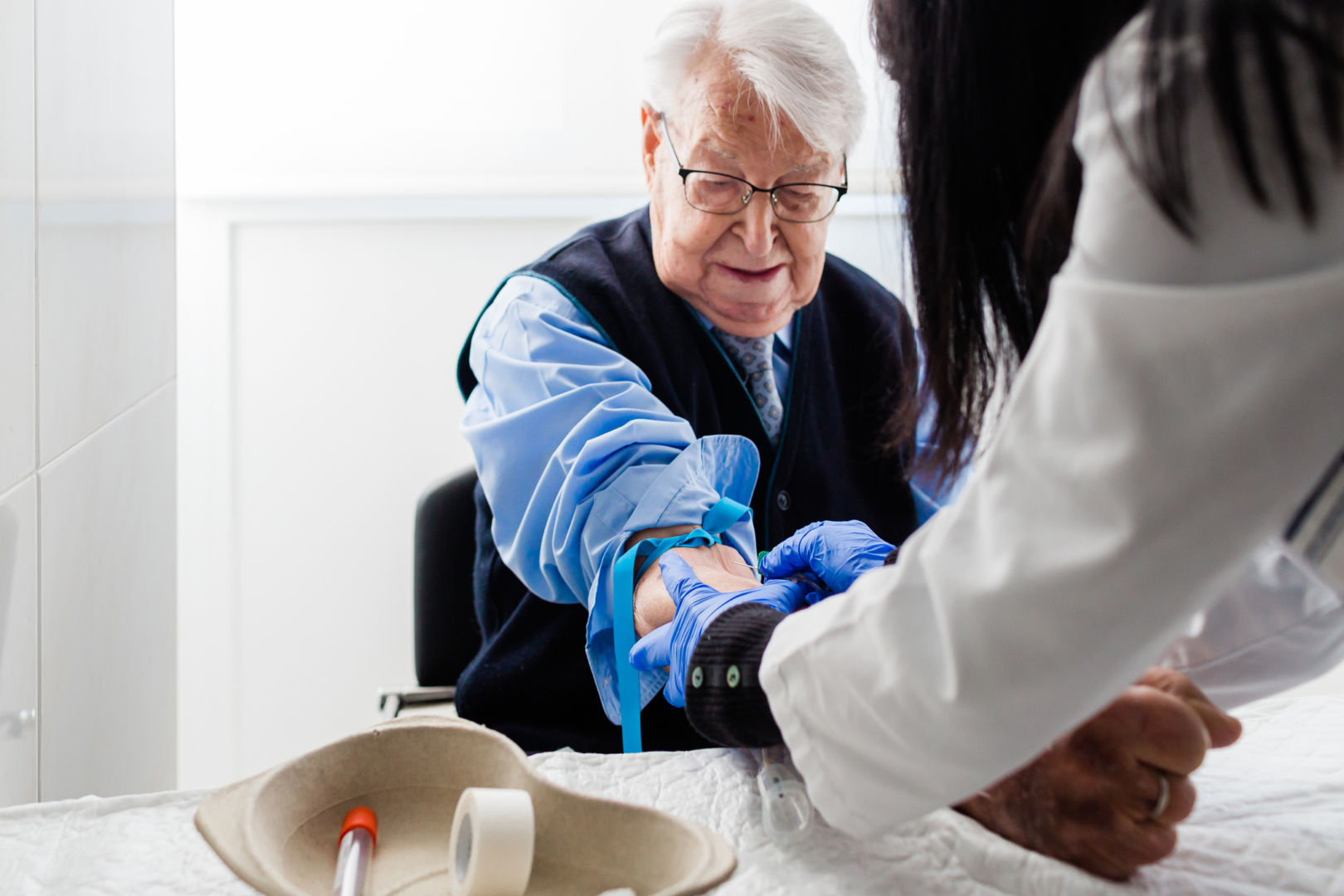Donating blood is one of the most under-appreciated acts of charity a person can perform. It’s something that is needed every single day. In fact, healthy blood samples are needed for a wide variety of life-saving medical procedures.
Most healthy, able-bodied adults are eligible to donate blood to eventually help those with an appropriate blood type. CareOne applauds everyone who has donated blood in the past. We also encourage those who are able to consider making a donation this year, in recognition of World Blood Donor Day.
World Blood Donor Day is an annual event held on June 14th. It’s an event that’s responsible for saving thousands of lives worldwide each year. This is also something we feel passionate about as many of the patients at CareOne’s acute care facilities and others have benefitted from someone who donated blood.
Even so, not everybody knows that World Blood Donor Day exists! With more awareness and more blood donors, more lives could be changed for the better. Here is everything you should know about being a blood donor and World Blood Donor Day.
What Are Blood Donations Used For?
There are many different ways that safe donated blood can be used to save a patient’s life. Patients suffering from chronic illness, severe trauma, or recovering from other medical procedures all rely on blood donations.
There are also different blood components that can be used for different procedures. Red blood cells, platelets, and plasma are all used in a variety of different medical procedures as needed.
Blood transfusions are often used to treat conditions in which the patient’s body is not producing enough blood on its own. Chemotherapy, for instance, can sometimes inhibit the production of new blood cells. Anemia and other blood conditions are also frequently treated with blood transfusions from donated blood.
CareOne patients may require blood after surgery or severe accidents. Patients who lose a significant amount of blood need donated blood in order to recover and restore normal blood levels. Blood transfusions often play a crucial role early in the recovery and post-acute rehabilitation process for many patients. Trauma victims and surgery patients are among the most common recipients of donated blood. Patients undergoing heart surgery or organ transplants in particular need healthy, compatible blood donations.
Why Are So Many Donations Needed?
The demand for blood donors seems to be greater than the number of blood recipients. The reason is that blood donations actually have an expiration date. Hospitals require a constant stockpile of all blood types for various procedures. But that supply is perishable, and some blood will spoil before it’s used. As a result, a steady supply of blood donations are required in order to keep up with demand.
Different blood components are preserved differently and have different shelf lives. Red blood cells are refrigerated and can last up to 42 days in storage. Blood platelets, which are used for certain special procedures, last just five days to a week in storage. Blood plasma can be kept frozen, and lasts for up to one year in this state.
Many facilities like those in the CareOne network rely on consistent blood donations in order to provide top-quality care. Blood transfusions are often urgent and highly important procedures. As medical professionals committed to providing world class compassionate healthcare, CareOne’s staff cannot stress enough the importance of safe blood donations.

Know Your Blood Type
While it is not essential for you to know your blood type in order to donate, it is good information to have. Compatibility is important in blood transfusion procedures, and certain blood types have wider compatibility than others. The four main blood types are A, B, AB, and O. O Positive and A Positive are the two most common blood types. AB Positive and Negative, and B Negative are the most rare blood types. In emergencies, any patient can receive Type O blood samples. However, doctors always prefer to use the proper blood type in all procedures. For this reason, if you have Type O, Type AB, or B Negative blood, there is even higher demand for your blood. You might give more consideration to donating blood if you have one of these blood types. Of course, all donations are appreciated.
How Do I Donate Blood?
World Blood Donor Day is organized by the World Health Organization. Specific information about this day can be found on the WHO website. The Red Cross also provides resources for those who would like to donate blood. The best way to donate blood is to find a donation center in your area and go in for an appointment. If you are determined to be fit and eligible, they will happily accept your donation! The donation process will take roughly an hour, which includes the pre-donation check, paperwork, donation, and recovery period.
Blood donors are eligible to donate blood once every eight weeks (56 days), if you would like to make repeat donations. It is always important to review the procedures and requirements for donating blood. It is critical that all blood donations are safe, for both the donor and any patients they might help.
The CareOne Difference
CareOne is committed to full-time, comprehensive healthcare for every patient we treat. In recognition of World Blood Donor Day, CareOne encourages all who are able to consider making a blood donation. Your donation could save multiple lives.
At every CareOne facility, blood, heart, and cardiovascular health are among our top priorities. Our aim is to provide healthcare across the spectrum for everyone we treat, whatever their unique health needs are.
Read more about CareOne’s services or contact us to learn how we can make a difference in the lives of you or your loved ones.